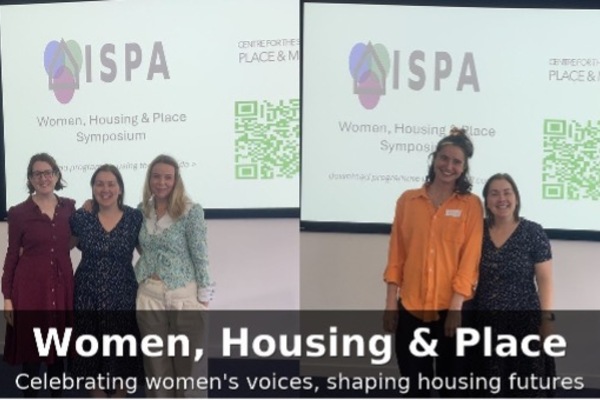New Housing Studies Association committee member Helen Taylor attended the Chartered Institution for Housing Conference on 27th – 29th June. In this blog she reflects on the key themes of the conference and calls for housing to stay firmly on the agenda in an uncertain and fast-evolving context.
As could be expected from the timing of the conference (the week following the EU referendum), a lot of the programme, discussions, and mood were impacted by the fallout of the previous week’s ‘Brexit’ vote. The conference sessions tracked the tumultuous week with talk of senior political comings and going, the lack of post-vote planning, and (thankfully minimal) changes in conference speakers all featuring. The conference began with a panel session featuring political editors from the Observer, the Evening Standard, and Daily Mail. Discussion focused on the role of the media in both sides of referendum campaigning and the impact of the vote on tenants and communities, with Andrew Rawnsley (the Observer) arguing that concerns around immigration are often a proxy for other discontents such as housing.
The conference closed with Lord Heseltine speaking as a member of the Estate Regeneration Experts Advisory Panel , and the CIH President, Julie Fadden’s, address. This session was well-attended, and Lord Heseltine focused on his commitment to regeneration and engagement with communities as part of this. Some conference delegates voiced disappointment that there were no policy announcements within this session and the conference overall (as is the norm), with such a change in tone inevitable in the unprecedented context of this year’s conference.
Members of the Greater Manchester Housing Action Group protested at the conference, calling for decision makers to consider the needs of those who are homeless or vulnerably housed. A main theme of their protest was local government decisions on development plans, and waiving or bending affordable housing contributions alongside this. It was great to have this type of representation present at the conference, and despite the division between protesters and conference attendees, there were no doubt elements of common cause to be draw out between these different groups of housing stakeholders.
A new addition to the 2016 conference was the CIH Education Hub, in which course providers from across the UK (including myself) were able to discuss with delegates the housing education they provide, and chat with sector representatives to ensure that the courses adequately reflected education needs within housing. This work spanned ongoing research, newly introduced MScs in Advanced Practice, undergraduate degrees, and lower level qualifications. It was great to be able to showcase the role of universities within the sector as well as the support for education and continuous professional development by delegates.
The impact of the Brexit vote was not yet tangible at the conference, despite dominating much of the discussion. Indeed, the implications remain unclear for the housing sector, housing studies and society more generally. The conference emphasised the importance of ongoing debate and discussion around housing issues, and the value of bringing people in the sector, including the housing studies researcher community, together to do this. It seems more important than ever that housing doesn’t fall off the political agenda, despite the uncertain context we currently face.







